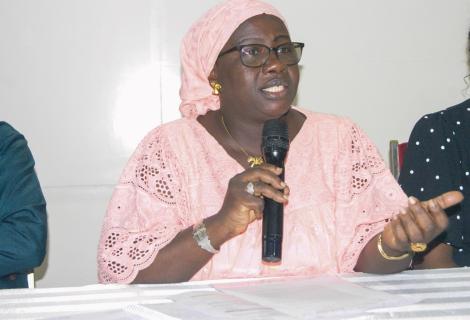AAITG Trains Board and Management of CSOs on Good Governance Practices

AAITG Trains Board and Management of CSOs on Good Governance Practices
ActionAid International - The Gambia, in partnership with The Association of Non-Governmental Organisations (TANGO) and the Network Against Gender-Based Violence (NGBV), organized a two-day capacity-building training for the Board Development and Management of Civil Society Organisations (CSOs).
ActionAid International - The Gambia, in partnership with The Association of Non-Governmental Organisations (TANGO) and the Network Against Gender-Based Violence (NGBV), organized a two-day capacity-building training for the Board Development and Management of Civil Society Organisations (CSOs).
Funded by UNFPA under the Gender Promotion Initiative (GPI 2.0 Project), this training is designed to equip CSO grantees of the project with essential skills and strategies to enhance governance practices, navigate challenges, and strengthen their organisations for greater impact in the civic landscape.
The training promotes active engagement, reflection, and sharing of experiences and best practices among peers.
The participants are exposed to an Introduction to Organizational Governance – Understanding the Importance of Governance in CSOs, the Roles and Responsibilities of the Board, Management, and Stakeholders, Building Effective CSO Boards, and Legal and Regulatory Frameworks.
Ndella Faye-Colley, Executive Director of ActionAid International The Gambia, highlighted the importance of the training, citing the huge responsibilities that boards and management of CSOs have in advancing the development of local communities.
She said ActionAid’s long history in this country has been supporting communities in developing livelihood initiatives to manage their livelihoods, and institutional capacity-building has also been at the core from the grassroots to national levels.
“For an organization to thrive in its development agenda, it needs to have governance rights,” she said.
She stated that CSOs need strong systems in place to work according to the required standards for donors to trust them. They should ensure their offices have the right systems to continue receiving their counterpart funding and deliver the services to the people they serve.
She added that at the national level, they collaborate with smaller CSOs to implement projects and secure funding, then engage in institutional capacity-building to improve their organizational capacities in governance, finance, human resources, and other areas.
This, she highlighted, will improve their institutional capacity and prepare them to access some of the funds available.
“To remain relevant, sustainable, and grow as an organization, your governance systems should be accessible, strong, and able to withstand changes. The world is dynamic, and changes are happening, but having the structure and systems that can adapt to these changes and continue to progress is key,” she said.
Nfamara Jawneh, Executive Director of Beakanyang Organisation, said the training will help them run their organizations effectively and ensure there is necessary leadership for the smooth operation of the organizations.
“It’s going to strengthen our governance systems. We hope that at the end of this training, we will have a clear roadmap regarding our limitations as executive directors and board members so that we can both perform our roles effectively”.
He added that CSOs, CBOs, and others should ensure that their organizations are well-structured. It builds trust not only among the members of the organization but also among the partners and donors.
“If we successfully put into practice what we learned here, it is going to be good for our organizations and for the entire civil society family in The Gambia,” he said